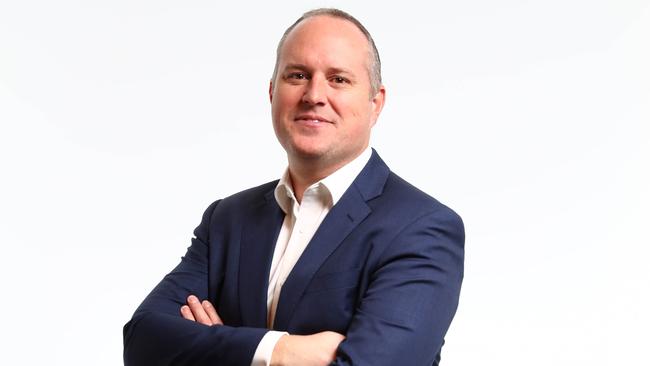‘Know your client’
For top adviser Mason Allamby the ‘know your client’ rule has come to the fore during the recent market turmoil.

For top adviser Mason Allamby the “know your client” rule has come to the fore during the recent market turmoil, given he guided many of his clients through the global financial crisis and knows how they reacted during that nerve-jangling period.
“We have close relationships with all our clients and a good understanding of their level of risk tolerance, so there hasn’t been any panic,” the Melbourne based Escala Partners principal says. “I have generally advised clients to stick with their investment strategies and asset allocations.”
Such clear-headed guidance has helped to elevate Allamby from seventh-ranked adviser on the Barron’s list last year to bronze medallist this year.
Allamby dubs himself a “doctor for my client’s personal finances” — not that he can dispense the right prescription all the time.
“I’d love to say we sold the clients down just before (the February market correction) but can’t,” he quips.
To navigate the coronavirus crisis, Allamby has drawn on his two decade track record in the profession, in which he started out as a paraplanner at Mercer’s financial planning division.
In 2013 Allamby and seven like-minded planners formed the boutique practice Escala, based on a charter of “ethical and well-considered” wealth management advice. Unusually at the time, the firm eschewed commissions for conflict-free fee for service. Allamby, his fellow partner Steve Collins and their team of three look after about 90 high-net-worth individuals and their families, generally with investable assets of at least $2.5m.
“I’m a massive advocate of getting things right from a tax and structuring perspective, even before we worry about the composition of the clients’ investment portfolios,” he says. “The strategies you adopt from the start in these areas reap massive benefits down the track from a tax, flexibility and estate planning perspective.”
In full: The List - Australia’s 100 Top Financial Advisers
While Allamby didn’t quite foresee February’s sharp transition from bull to bear in March, he says the firm had been advising clients to trim equity portfolios late last year and in January this year.
“This resulted in clients holding more in cash and defensive assets than normal, which gives them a buffer and peace of mind that they have accessible funds to cover their income requirements,” he says.
Allamby says the robust share market recovery since mid-March has “defied the odds” given the likelihood of more bad economic and corporate news. “Having said that, given the amount of stimulus thrown at the economy globally we may end up in a position not as bad as we expected.”
Allamby also urges investors not to take a “business as usual” stance on property, with defaults likely to rise as government and banks wind back their support. “There is no such thing as a free lunch and these loans need to be repaid at some stage.”
With the firm’s clients’ defensive fixed interest and cash holdings likely to subdue returns for some time, Escala is sniffing out assets uncorrelated to the share market.
“For more adventurous clients we look at unlisted property, debt and credit investments to increase the yield in portfolios,” Allamby says. “However I’m pretty cautious on any allocation to ensure that liquidity doesn’t become an issue.”
Allamby and his wife Natalie have founded the Tristan Allamby Research Fund (tarffa.com), which aims to fund research for the rare neuro muscular condition Friedreich’s ataxia. Their son Tristan suffers from the mobility-restricting disorder, which is most common in children aged five to 18.
“It’s really a race against time to find something for him and the other people who are suffering from a rare condition that receives little coverage or support,” Allamby says.


To join the conversation, please log in. Don't have an account? Register
Join the conversation, you are commenting as Logout